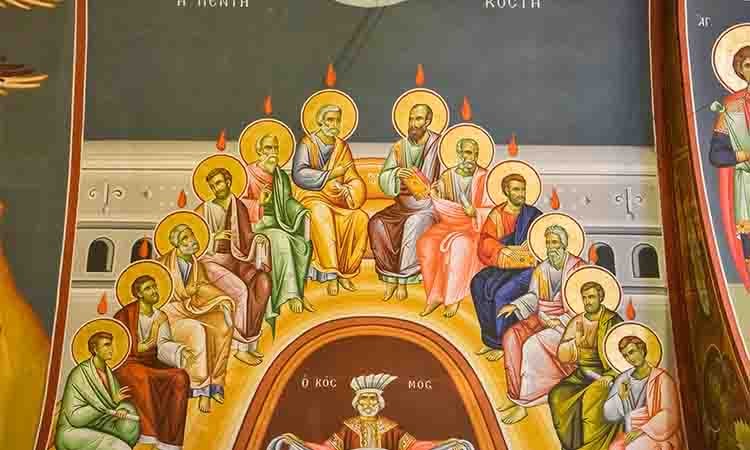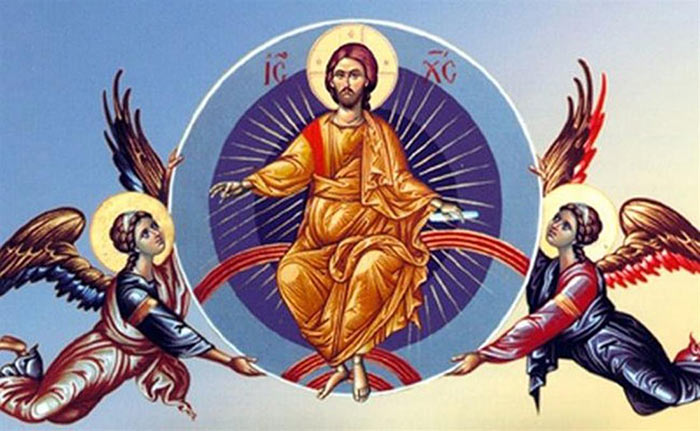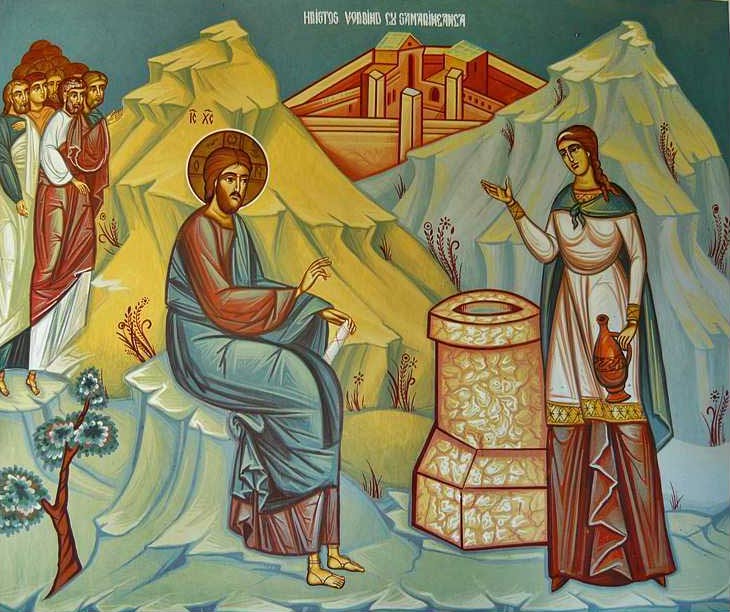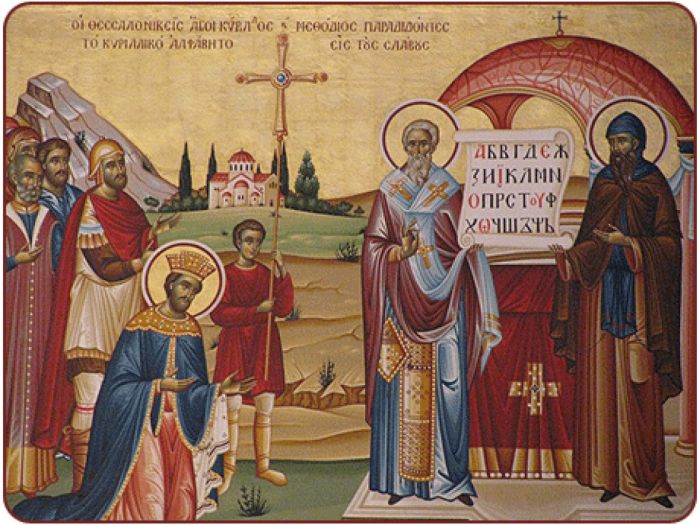- Details

Today is the joyful celebration of Holy Pentecost! In the Acts of the Apostles, we hear in detail how the Holy Spirit came down upon the Apostles and those first faithful who were devoted to the Lord, some one hundred and twenty of them. What happened after is amazing, in that three thousand people were baptized on the same day, and the Holy Church of Christ was revealed on earth. The great event of Pentecost gives us the opportunity to get to know the Holy Spirit, including His relationship with the faithful, and how we as the faithful can receive His blessings.
- Details

With the Ascension of Jesus Christ into Heaven, we may think that His Disciples were sad to be separated from Him. Up until that moment, the Lord was with them. He spoke to them, and they heard His voice. Now He’s gone, and they won’t see Him again! That is how the Ascension appears to human eyes. But if we look at it through the eyes of the soul, illuminated by the Holy Spirit, we see it very differently. The Ascension is not a separation or ending, but a continuation of the Lord’s Resurrection. In this light, it becomes the most joyous event. It is the fulfillment of our Lord Jesus Christ’s mission, for which He became man, and entered the world.
- Details

On May 21st, the Church commemorates two saints with particular gratitude, for the great services rendered to God. They are St. Constantine, and his mother St. Helen.
St. Constantine was born in the town of Nysos (which is now the city of Nis in Serbia) around 275 AD. His father, Constantius Chloros, was of Greek-Illyrian origin and rose to become Emperor of the Western half of the Roman Empire. His mother was a virtuous and devout Christian named Helen, who was born in the town of Drepana, Bithynia (Asia Minor) around the year 247 AD. History has called St. Constantine “the Great” for his prudence in politics, his military skill, his courage, and his role in the development of the Eastern Roman Empire, starting with the moving of the capital from Rome to Byzantium (renamed Constantinople after himself). The fruit of this was the flowering of Byzantine civilization for a thousand years, producing great works which not only benefited the Empire itself, but other peoples as well. The Church honors him with the title of Isapostolos (“Equal to the Apostles”) and as a Saint, for his work in defending the Christian faith in the empire and in the home.
- Details

This Sunday honors a remarkable missionary, someone who proved to be more than what society thought of her. It is St. Photini (the name means “Enlightened One”), who was the Samaritan woman Jesus met at Jacob’s well, as described in today’s Gospel reading. She was from Samaria, a people the Jews considered as heretics, shunning them and refusing to have any dealings with them. St. Photini’s old life had been a scandalous one, which was widely known in her community. In spite of all of that, she was a person who was spiritually searching. She had been with multiple men, but she was still unfulfilled, wanting something greater. What she was looking for was salvation. She wanted to find the Savior, the Messiah, and when she finally met Him, her life changed completely. She became Photini, and is forever commemorated and honored by the Church.
- Details

Wonderful is the missionary work of Sts. Cyril and Methodius, who are commemorated together on May 11th. Their mission was spread over a vast area of central Europe, which consists of what is now the Czech Republic, Slovakia, Slovenia, Croatia, Bosnia, Montenegro, and Ukraine. Their reach even extended to parts of Austria, Hungary and into Russia. Whole nations abandoned paganism and superstition, in favor of Christian civilization. They worked as equals, determined to plant the Christian faith as Apostles to the Slavic peoples.





